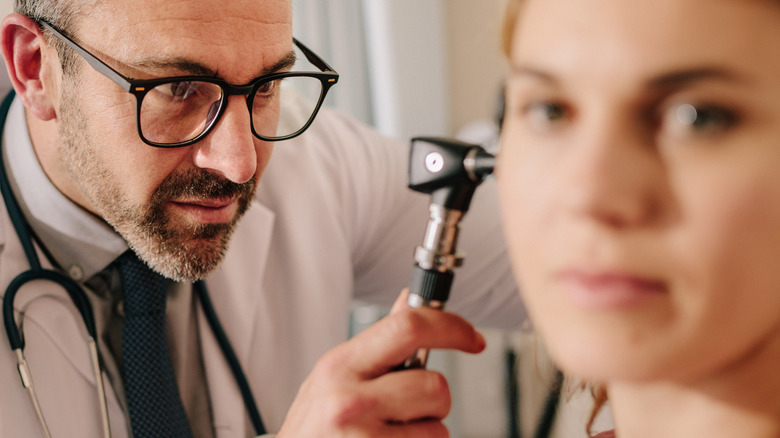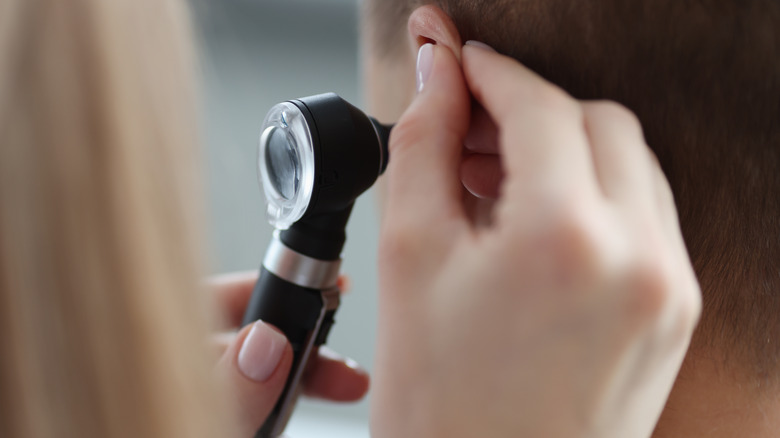What Happens If An Ear Infection Goes Untreated?
Ear infections can happen to children, adults, and even pets, and it's no secret they can be a real pain (literally!). Detecting an ear infection isn't so simple for everyone, as some ear infections may be milder than others.
According to the Mayo Clinic, there are many different symptoms of an ear infection, and leaving an ear infection untreated can lead to serious complications. Before possible complications even cross your mind, be on the lookout for common symptoms of an ear infection, like trouble hearing, ear pain, and drainage in your ear (via Mayo Clinic).
If an ear infection goes untreated or ear infections occur again and again, impaired hearing can result. "If there is some permanent damage to the eardrum or other middle ear structures, permanent hearing loss may occur," the Mayo Clinic confirmed. Tearing of the eardrum and speech and developmental delays (specifically in young children) are also serious complications that may occur. Eardrum tears typically heal themselves over the span of a few days, but sometimes surgery is needed. And while rare, an untreated ear infection can spread the infection to the bones, brain, or other tissues found in the skull.
Prevention and proper treatment are vital
While you may not be able to avoid an ear infection completely, there are steps you can take to prevent one from (hopefully) occurring, Healthline reports. One of the best ways to prevent any illness is by washing your hands thoroughly and avoiding anyone who may be feeling under the weather. Those who become sick with a cold or another type of respiratory infection have a higher chance of contracting an ear infection (via Healthline).
Ear infections usually heal on their own or with the help of antibiotics, but keeping your ears clean, staying up to date on vaccinations, and managing your allergies are some of the other ways you can keep your ears healthy.
It's vital you get proper treatment for your ear infection to avoid any serious complications. Ear pain doesn't always point to an ear infection, but if you think you're developing an ear infection or have one already, reach out to your doctor for proper treatment and guidance.


